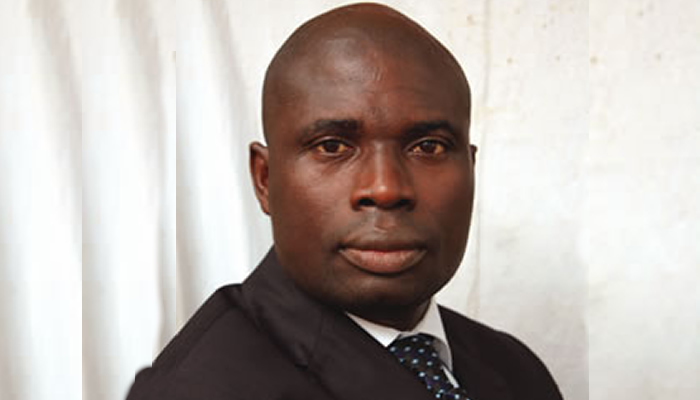
The assertion that men are separated from boys has been regularly made by some after each crucial phase in the election season that began about a year ago. May 2022 actually marked the beginning of an eight-part series that I wrote in Elrufai News Magazine, focusing on the possible scenarios that would play out during the election season. Essentially, I discussed issues that would make it possible for the ruling party to retain the presidency, even as some spoke about the religious colouration of the ticket. My view that the ticket would win could only be made by whoever looked at facts and figures, not sentiments.
After the ruling party’s primaries were concluded, I also pursued another series on this page. In them, I stated that some in the ruling party who contested in the primaries against the eventual winner mostly treated becoming the president as a one-day affair, a spur-of-the-moment thing, a knee-jerk decision, reeking of opportunism even. I noted in those pieces that some aspirants bought tickets to the contest not because they had worked hard towards fulfilling their ambition, but for some other reasons that were as bizarre as they were inconceivable. I stated all of that not because I was close to anyone who contested. Rather, I watched the political atmosphere, and having done away with sentiments, stated the reasons I believed the outcome of the election season would be what it eventually was. A few days ago, I asked a friend what he made of the views I expressed in private conversations with him before the elections happened. He said, “You said so.”
As I always state, if you read political science and your analysis remains pedestrian, largely propelled by sentiments, you haven’t been well trained as a political scientist. As a journalist with a political science background, my position on many public issues has earned me different derogatory names, which is fine because we can’t all see things the same way. But I can’t have the kind of training I did and still, reason based on sentiments. Even my former political science lecturers would be embarrassed, and one of them actually did say to us in class, “You can’t be trained as a political scientist and still reason like anyone else on the street.” I still recall one of my former lecturers at the University of Lagos, Dr Femi Badejo, who would appear as an analyst on NTA News in those days and would say to the news anchor, “What’s the empirical basis for making such a generalised assertion?”
All of that is my way of coming full circle to my focus for this piece, which is to argue that preparation for becoming the leader of a nation doesn’t start in the year of the election as some demonstrated in 2022. It does much earlier.
I take on this theme because I still hear the argument of some Nigerians who talk like one could join a political party today and in a few months become the president of the nation. If it can happen in other nations, certainly not in Nigeria where several factors, not just the state of the economy or insecurity, influence how and who Nigerians vote. I have stated before that some national issues that the educated ones use to decide who they want to vote don’t cut ice with that segment of the Nigerian population that votes the most. And there’s a segment of the population that votes the most; they don’t tend to be the most educated in our society. Factors or issues that propel them tend to be local rather than national, one reason it’s said that politics is local. If this point is dismissed by anyone, such isn’t ready to accept the realities in our nation i.e. the things that inform who and how our people vote as they do.
I took note of the kind of energy some put into working for their aspirants and candidates during the party primaries and the last presidential election. Yet to become anything in politics, win and occupy the office, it doesn’t start when the election is here. It always starts in the past, and those who know politics realise how important it is to get ready and look proper for D-day. Many don’t understand this; so they talk and do the divisive things they do but when an election is around the corner they issue threats that the man from their tribe must present the next president. Politics is that delicate. You do and say all things wrong and you get results when the election is here. It’s about numbers, no magic.
Some political supporters stridently insulted people on the basis of their tribe or religion, condescendingly referring to them, yet they exuded confidence their candidate would win. They wouldn’t make friends across the Niger River, they made others feel they were worthless; nonetheless their enthusiasm that the candidate from their tribe would win even among the people they insulted was as huge as a whale. That’s one lack of preparation for the election season, people believing they can do or fail to do some things and yet they or their candidate will win.
I also take note of many who come to the public space after every election to issue threats that if their tribes are not given certain positions in the polity then all hell would be let loose. They and their people don’t support the winning candidate, yet they’re ever the first to tell the winner how he should form his government for the sake of “equity.” I find this amusing, a manifestation of taking politics, power politics, to be children at play in the front yard. I support fair distribution of offices to all our people whether they vote for the winner or they don’t. But that some who stridently opposed and insulted the eventual winner would be first to issue orders on how the winner should set up his government is just way too much to believe. It’s another indirect manifestation of their belief that without preparation they can win the presidency.
For me, in a complex nation such as our getting the best out of politicking is predicated on playing the game well and playing it in an intentional, calculated manner. Everyone can express their desire to produce the president and it’s their right to do so, but work which ensures their desire becomes reality doesn’t start in the election year and it doesn’t start on election day. It should start long in the past; for victory is systematic, planned, and largely the outcome of careful politicking and some strategic political alliances in a nation such as Nigeria. It takes more than those press briefings to lay claim to the presidency, for instance. It takes far longer than the election season to present a candidate for the presidency and have him accepted across tribes and religions.
That a person is popular among a section of voters isn’t enough to clinch the presidency. That your tribe hasn’t presented a civilian president before isn’t a sufficient claim in a nation with more than 200 tribes and languages. In politics nothing confers special treatment on you, you have to contest fairly and play it wisely for the goodies to come your way. Real politicians know that what determines a winner is complex. So they take care of all factors. And they started long ago, not when the election is here.
The foregoing is spurred by claims some express that their candidate won in every part of the country but they’re denied. Note that they believed they won even in states where their party structures collapsed into some other parties. There were at least seven such states before the general election. They gathered under the party they did only months before the election. In some states, you didn’t get to see the posters of their presidential candidate except on a few streets in state capitals. Lately, the electoral commission said a presidential candidate now in court didn’t have agents in almost 60 per cent of the voting stations across the country. Yet their supporters believed they won. I think people should learn to manage their aspirations and expectations better.





